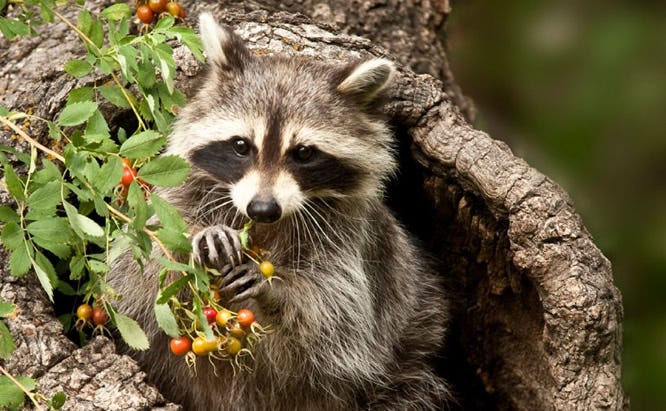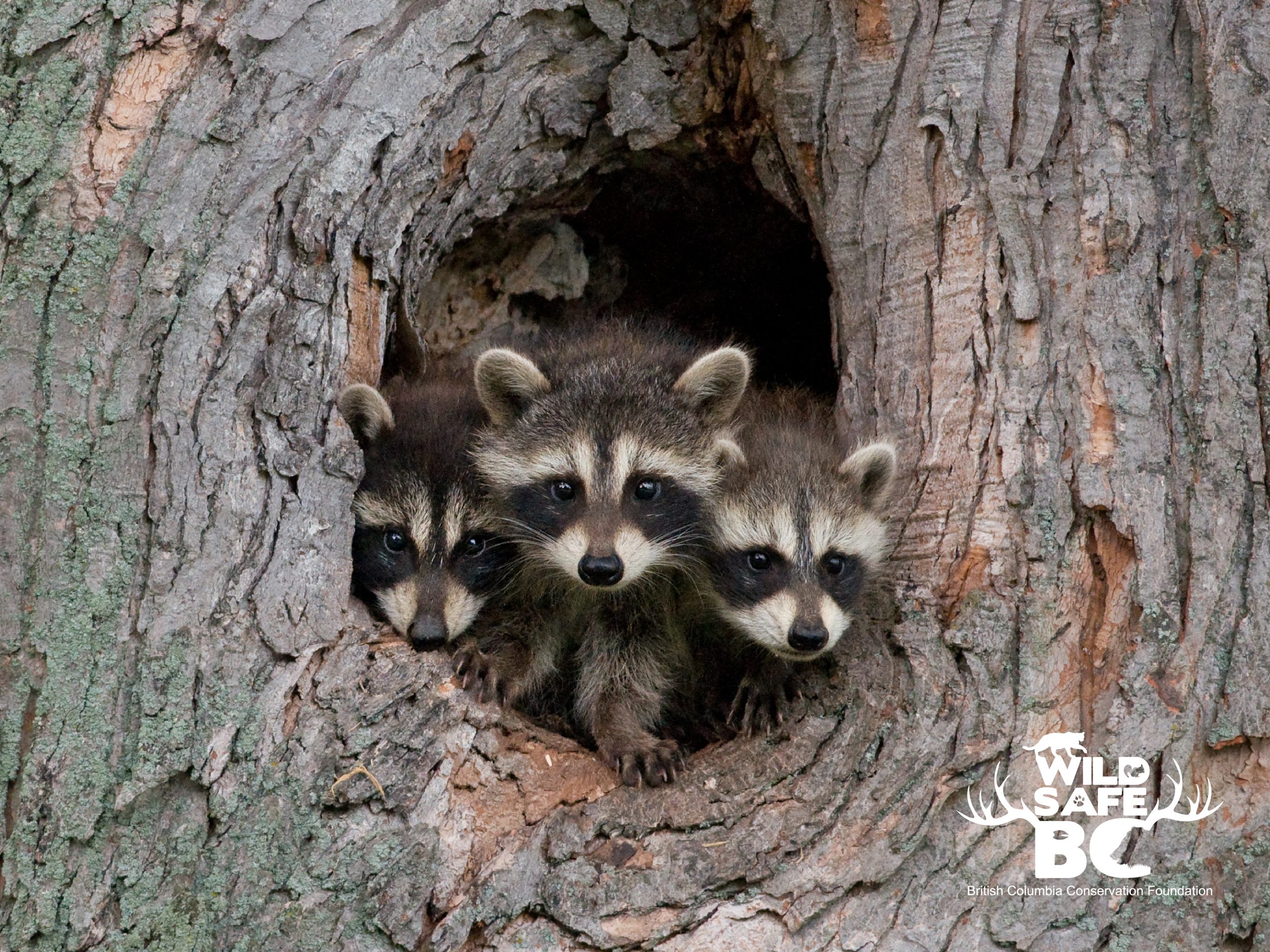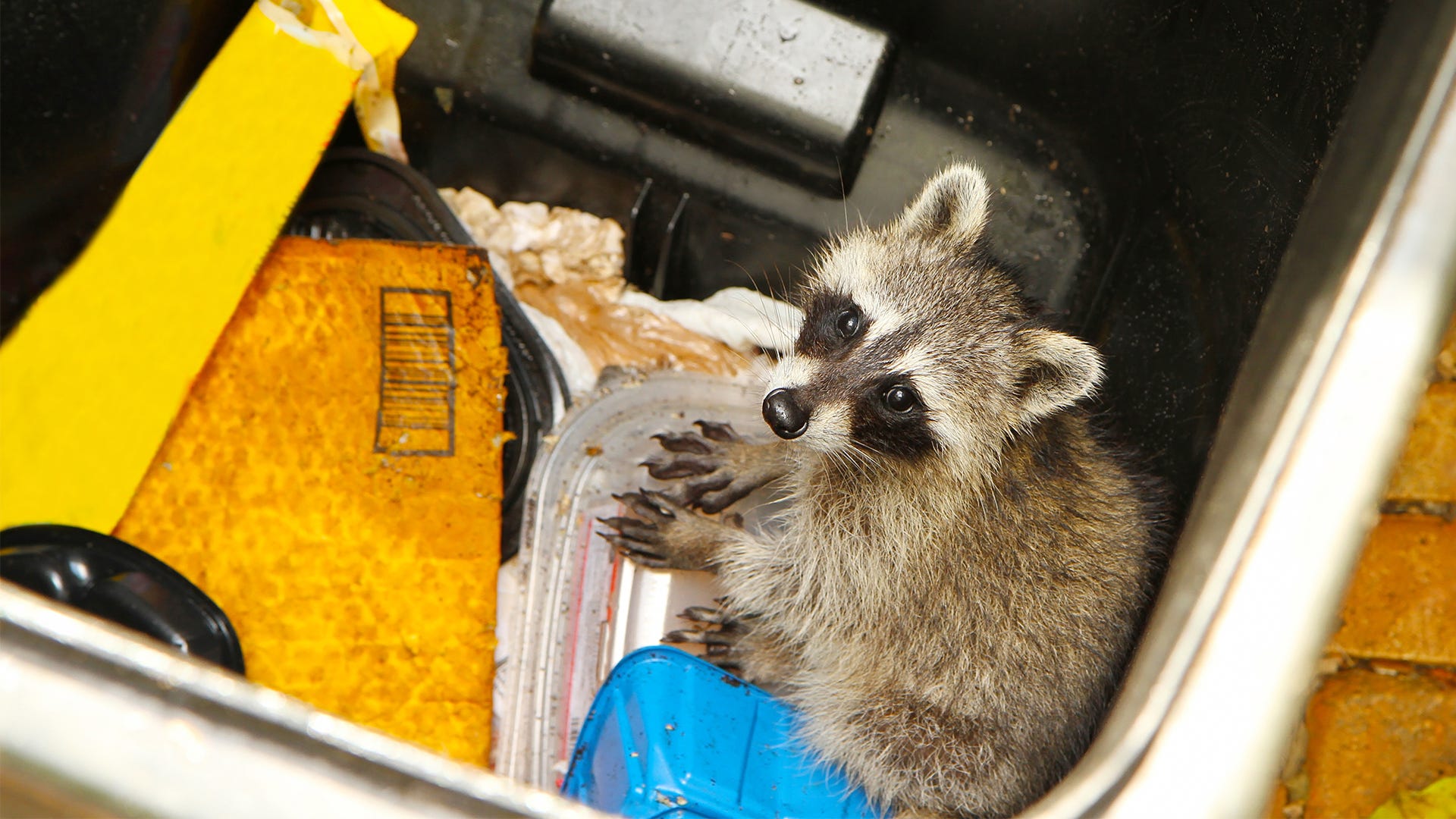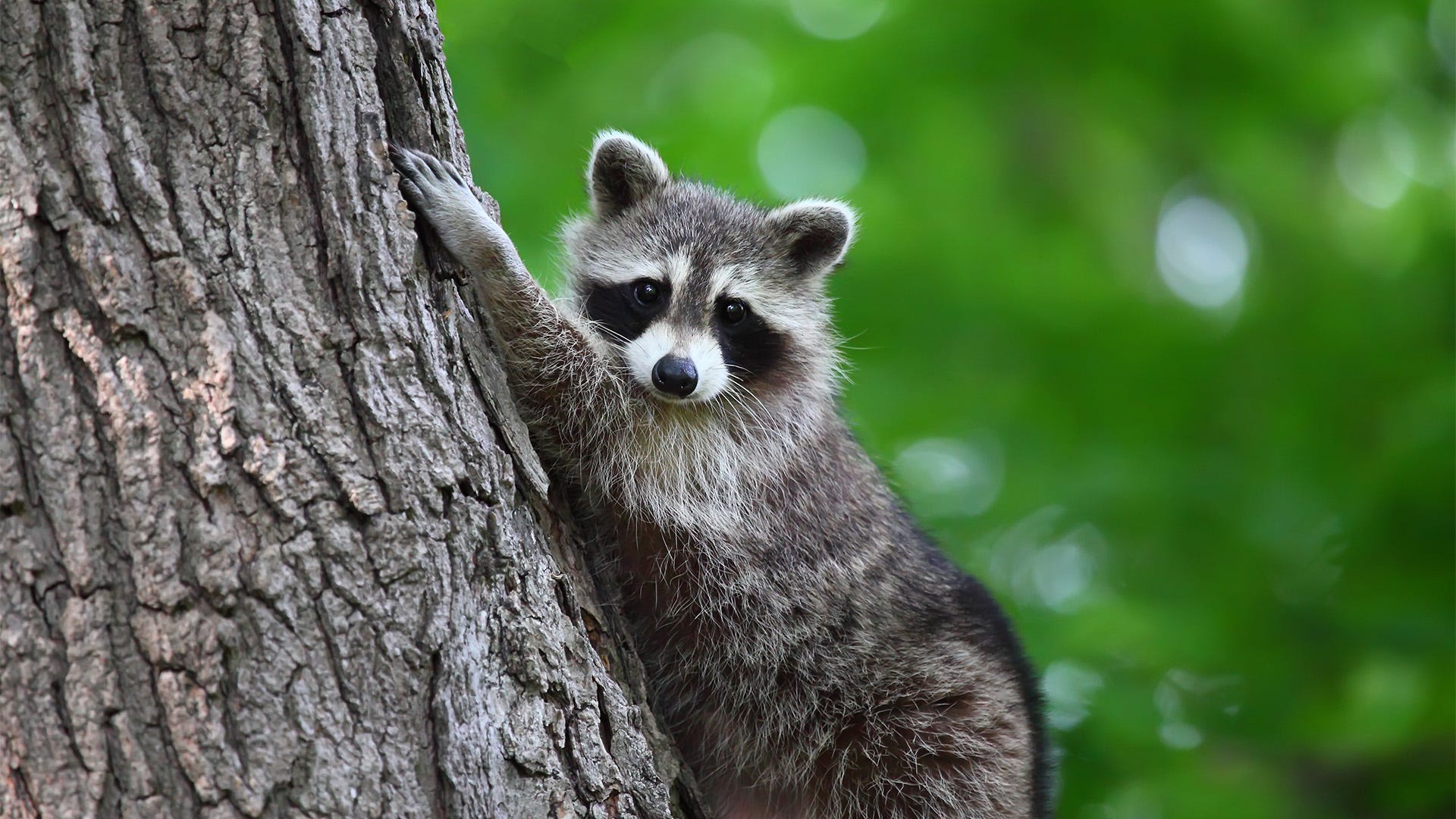do raccoons stay in trees
Raccoons in Trees Do Raccons Live in Trees. If you notice a raccoon in your tree the first instinct is to actually get them away because they are carriers of diseases and can wreak havoc especially when you have pets.

Raccoons Facts And Fancies Wildlife Rescue League
Raccoon Nest In Attic - Nesting Season Raccoons very frequently create a nest inside attics and trees.

. Ohio raccoons do not like snow. Raccoons are great climbers. Traditionally raccoons prefer heavily wooded areas with access to trees water and abundant vegetation.
Hollow Trees Bird Nests. There they make their dens in the hollow parts of trees as well as abandoned burrows traveling up to 18 miles to forage for food. The main reason a raccoon will sleep in the hollows and cavities of trees is to avoid predators.
Hollows of trees are one of the many places that raccoons go to sleep Here are more places where raccoons sleep To escape predators. Raccoons are excellent climbers making tree dens an optimal location. Caverns and natural cavities are more commonly used by female raccoons as they make good nesting dens to raise their young.
Raccoons cant sleep on top of trees. Raccoons prefer to live in small dark and enclosed spaces that will give space to them and their families but keeps them safe from predators. However raccoons sleep in many different locations at once and a tree is only one of them.
With the weather we have had lately this is normal and to be expected. Residents say they usually never see raccoons during the day. While active at night these intelligent creatures sleep during the day.
Locking garbage bins fencing off vegetable gardens and covering fish ponds is the first step in discouraging raccoons from entering your property. The answer is no except in cases where a den is located inside a hollowed tree. However you can detect the animals presence in your trees in other ways.
Actually a mother raccoon will often live in a tree hole high enough to avoid predators and raise her young out of harms way. Staying in trees helps the raccoons escape large predators that cannot climb. Trees offer protection particularly from predators on the ground and the raccoon has a.
Also unlike squirrels raccoons dont build nests in the branches of a tree preferring to hide away inside natural hollows within the trees trunk. Not all predators can climb or jump up trees. However raccoons do not make long-term homes in the branches of trees.
Raccoons generally can live in hollowed with some rotten logs however they cannot stay or sleep in trees with no space for burrowing and creating hollows. There are some simple things that you can do to ensure that raccoons stay out of your trees for good. Like before raccoons will gather grasses twigs and even leaves to insulate the space and make it perfect for daytime resting.
Moreover one of the benefits for living on treetops is that it would be quite convenient for raccoon to attack the prey from above. The nesting season is usually in spring with peak time for birth in March and the babies are often noticeable in April. Block off nesting locations.
Raccoons tend to encounter these nesting spots below fallen trees. Do Raccoons Live in Trees. Weve had several calls the past two days from folks concerned they are seeing raccoons out in trees during the daytime.
Rock crevices caves the area beneath fallen trees and under brush piles are all up for the taking. A raccoon may live in a tree one night and relocate to a cozy spot in your attic the next night. Raccoons Create Natural Dens Raccoons will commonly take up residence in a den made by nature.
Raccoons are active at night and will retreat back to their dens at the end of the night to sleep. It shelters the raccoon and its family from inclement weather conditions and also provides protection from predators. Raccoons can adapt quickly to urban lives where there are quite a number of huge trees where they can create temporary nests.
Seal Up or Cover Holes. It is more common for a raccoon to sleep in a tree in a natural foresty and non-urban. Trees are Perfect solution for thisThey may choose to live in tree trunks or in especially dense foliage that can provide reliable shelter.
Raccoons will sleep in trees in the wild. Tracks that look like tiny handprints in the. During breeding season and harsh winter conditions however they will opt to remain hunkered down in their den for more extended stays.
They avoid sleeping on the ground or in the open because it makes them vulnerable to large predators like wild canines and felines. Healthy raccoons are primarily nocturnal so sightings are often rare. Raccoons will create dens in tree hollows dig themselves into borrows or find a place in your attic or chimney.
These animals prefer living in trees that have long branches. A raccoon will also choose the safety of a tree for protection against the elements. Since they have sharp claws raccoons in trees mark up the bark as they climb.
The wood creates natural protection while keeping them safe from the elements. They are only known to live in hollowed trees ideally at the trunk or base. Raccoons are mammals known for their nocturnal habits.
Raccoons have been spotted living in hollowed trees and even rotted logs however they will not build their nests on trees. The females usually have 3-5 young per litter. Where do raccoons sleep during the day.
Tree hollows are actually some of raccoons favorite denning sites as they provide shelter from predators and the elements so property owners may see adults climbing trunks to their nests. These opportunistic mammals usually sleep during the day in dark tunnels such as hollow parts of trees or logs or even in barns attics sheds and basements. They are often found in suburban and urban areas making.
They may rest in the branches temporarily and keep a lookout for prey. Due to the fact that raccoons are often found on trees most people are thinking whether or not the animal usually live on trees. This includes sealing up holes making your trees unclimbable setting up a secure fence and keeping your yard clean.
Raccoons may climb trees in order to rest safely during the day. Raccoons spend a lot of their time in trees and because of this they have become very keen climbers. Here are a few long-term solutions for keeping raccoons away.
A hands-off approach Many people find raccoons to be cute and it can be tempting to approach or even feed them when you cross paths. Raccoons are extremely adaptable. Rather they love to climb trees to rest or hide away from their enemies.
Yes raccoons often live in trees. The adult male raccoon on the other hand is known to temporarily stay in trees. How they get into trees Raccoons have the capability of climbing trees especially when you leave the bark unprotected.
Most raccoons however will rest inside one of their dens. A hollow in the tree trunk on the other hand provides a superb place for a raccoon to make its den. But the actual truth is that they do not live or sleep on trees.
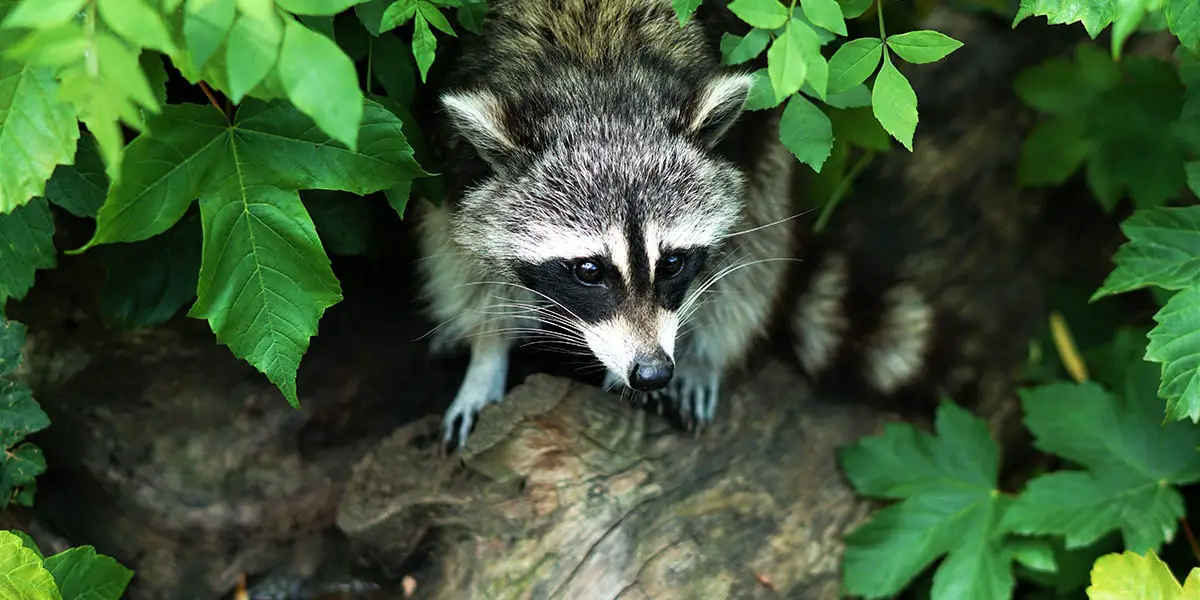
Do Raccoons Live In Nests Up In The Trees
Do Raccoons Live In Trees And Sleep In Trees
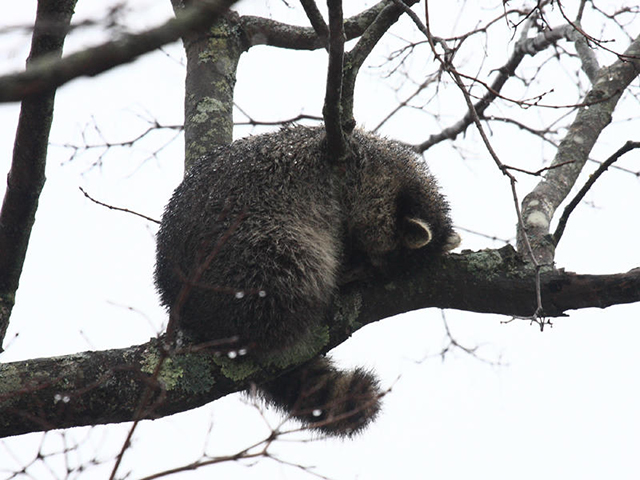
Dublin Ohio Usa Why Are There Raccoons Sleeping In Trees

6 Places Raccoons Nest And How They Do It Pest Pointers

Can Raccoons Live In Trees In Your Yard Blog

Do Raccoons Prefer To Live And Sleep In Trees Qnewshub
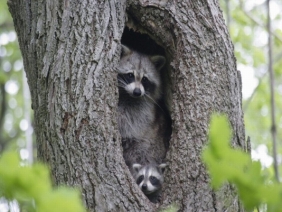
Do Raccoons Live Or Nest In Trees Critter Control

Where Do Raccoons Live Wildlife Informer
Do Raccoons Prefer To Live And Sleep In Trees

Can Raccoons Live In Trees In Your Yard Blog

Where Do Raccoons Go During The Day Backyardscape

Do Raccoons Live In Trees Can Raccoons Climb Trees

3 Unique Ways That Raccoons Can Damage Your Trees Pest Pointers
